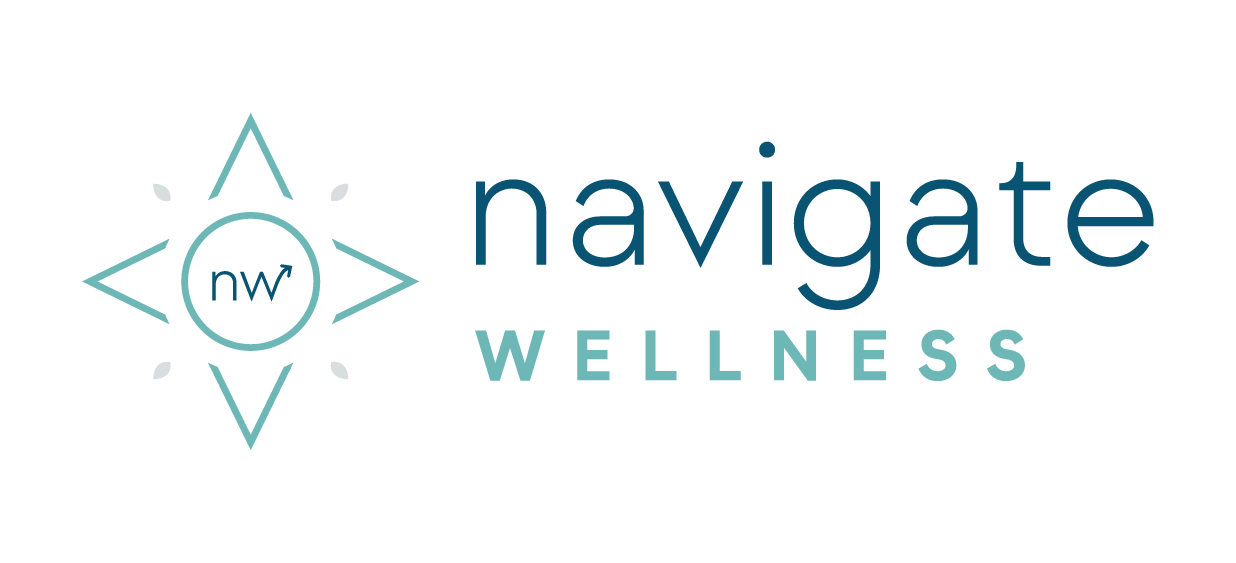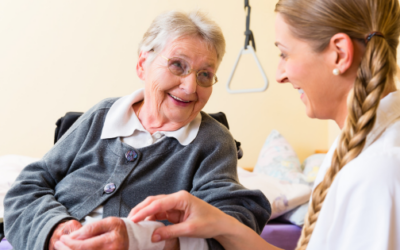Tips to Help Decide What’s Best for Your Loved One
One of the most frequent questions we get asked is ‘how do I know when it’s time for my loved one to go into senior living?’ Unfortunately, this is not an easy question to answer and our emotions can often cloud our judgment.
So, how can you answer the question, “Is mom safe at home?” At Navigate Wellness, we have an eight point assessment we use to develop an objective answer on whether your loved one may be ready to live away from home. When we do an assessment with someone, we go over eight different areas to make sure we’re capturing what’s going on and to make a proactive plan. We look at health, environment, social support, as well as legal and financial advocacy. We also look at local resources and we make plans for crisis intervention.
So, what can you do on your own to start to explore this topic with your family? Keep reading to explore some of the signs your loved one may no longer be safe at home and get our best tips for navigating the decision.
10 Warning Signs That Mom Isn’t Safe at Home
Here’s a list of 10 warning signs that a loved one may no longer be safe living independently at home:
1. Difficulty with Daily Tasks: Struggling with basic activities like cooking, cleaning, bathing, or dressing.
2. Frequent Falls or Injuries: Increased falls, bruises, or unexplained injuries, indicating mobility or balance issues.
3. Neglecting Personal Hygiene: Poor grooming, body odor, or wearing the same clothes repeatedly.
4. Memory Loss or Confusion: Forgetting important details such as names, addresses, appointments, or getting lost in familiar places.
5. Unpaid Bills and Financial Mismanagement: Stacks of unpaid bills, late notices, or difficulty managing money that wasn’t present before.
6. Poor Housekeeping: A noticeable decline in the cleanliness of their home, with clutter, dirty dishes, or unsanitary conditions.
7. Social Withdrawal or Isolation: Avoiding friends and family, losing interest in hobbies, or spending excessive time alone.
8. Weight Loss or Spoiled Food: Unexplained weight loss, expired food in the fridge, or skipping meals due to difficulty preparing food.
9. Unsafe Driving: Frequent accidents, traffic violations, or noticeable confusion or anxiety while driving.
10. Mood Swings or Depression: Increased irritability, sadness, or mood changes, potentially signaling cognitive or emotional health concerns.
If you’re noticing any of these signs in your loved one, it may be time to consider additional support to keep your loved one safe at home longer.
Of course, when completing an assessment, it’s important to not take each item individually, as all the factors are connected. The answer to this burning question isn’t simple and lies somewhere in looking at the questions holistically.
Aging at Home vs Assisted Living: Tips for Navigating The Decision
Let’s go over some tips on what to look for when you may begin to think it might be time for mom, dad, or a loved one to go into senior living.
1. Acknowledge Tension
Recognize the tension that might bubble up over this topic. A lot of people resist the tension and think it’s normal. Although the tension is common, we recommend listening to that tension. When there’s stress, that’s a really good sign that there’s a mismatch between the environment that this person is in and their social support, their health support, or just the general plan. Instead of ignoring the tension that indicates there’s a mismatch, lean in to find out where it’s really coming from.
2. Focus on Activities of Daily Living
When professionals are assessing someone and their environment, they will look at activities of daily living (ADLs) and also instrumental activities of daily living (IDLs). These include using the phone, technology, shopping, food prep, cooking, housekeeping, laundry, transportation, medication management, and financial management. These are things that if someone can’t do, they’re not in huge trouble right now. But, this is a cue that things are starting to deteriorate. This is also where support can be added to help someone do these things to increase their chances of staying at home.
3. Explore Social Support
Acknowledging IADLs and ADLs are really important to understanding someone’s situation, but so is social support. It’s important to know that this support looks different for everyone. Support could be formal care which is when you contract a caregiver to help with certain aspects of your loved ones life. Support also shows up as informal care, such as in a friend or a spouse who isn’t being paid but can fill in the gaps. Two of the biggest things to consider when your loved one stays at home is their level of social support and their financial picture. If you don’t have anyone who can come into the home and you aren’t able to find a way to pay for it, that’s going to help make the decision for you. We have to find a place where these services can remain in the budget.
4. Protect Independence, Dignity, and Safety
Protecting your loved one’s independence and dignity becomes even more important when it comes time to plan. At times, compromises do have to be made, and you might not be able to meet every single little thing on the wishlist for your loved one. But, you do need to make sure that the big things are covered and that people are safe.
What you determine as ‘big things’ are prompts for a larger discussion with your loved one. Sometimes people really believe that the epitome of independence is staying at home. But if we really dive into that conversation and look at the things they want to do and the things that they don’t want to do, the tension that’s going on, their financial picture, and their social support we can see that sometimes moving into senior living is the best option to protect that person’s independence.
Use the IADL and the ADL assessments as an upfront guide that can make the decisions for you. When we take the time to put words to paper, it can provide clarity and a less sensitive place to start these conversations.
As a reminder, it’s important to get an understanding of what your loved one believes independence means to them. It’s even more beneficial to have these discussions proactively. When you take these steps proactively you’re able to diminish the tension within these sensitive conversations before they are heavy and real.
What Should You Do If Mom Isn’t Safe at Home?
If you review your loved one’s mental, physical and social support and determine they are no longer safe at home on their own, it’s time to take action.
While every situation is unique, there are some key steps you can take to make the transition easier.
Talk to Openly and Compassionately
Start the conversation gently by expressing your concerns and using “I” statements, such as, “I’ve noticed you’ve been having some trouble with…” Listen to your loved ones and respect their autonomy while addressing safety concerns.
Consider Modifying the Home for Safety
- Remove trip hazards (e.g., rugs, cords).
- Install grab bars in the bathroom, stair railings, and ensure the home is well-lit.
- Set up medication reminders or pill organizers to prevent missed doses or overdoses.
Evaluate In-Home Support Options
- Home Health Care: Hire a caregiver to assist with daily tasks like bathing, cooking, and medication management.
- Meals on Wheels or Grocery Delivery: Ensure she’s getting proper nutrition without having to cook or shop.
- Medical Alert Systems: Consider installing a medical alert device for emergencies.
- Housekeeping Services: Arrange for cleaning help to maintain a safe environment.
- Concierge Nursing: Get personalized nursing care at home with a concierge nursing service like Navigate Wellness.
Explore Alternative Living Arrangements
- Senior Living Communities: Explore assisted living or independent living communities that offer social support and safety.
- Moving in with Family: Consider having her move in with a trusted family member if possible.
- Memory Care or Nursing Homes: For more advanced needs, such as dementia care or chronic health conditions.
Consult a Geriatric Care Navigation Specialist
If you’re not sure the best option for your loved one or just need help navigating all the options, a geriatric care navigation team can help. When you work with Navigate Wellness, for example, our care navigation team can assess your loved one’s needs, recommend services, and guide you through care options.
Take Care of Your Own Well-Being
Caring for an aging parent can be emotionally and physically draining, so it’s important to prioritize your own mental and physical health as well. Take care of yourself through exercise, mental health support, hobbies and relaxation strategies. Boosting your overall wellness with services like in-home IV hydration can also help you feel your best.
Monitor Regularly and Adjust the Plan
Reevaluate your loved one’s situation regularly and be flexible with the care plan as their needs evolve.
Is Mom Safe at Home? Find Out Today
If you want to proactively take charge of your loved one’s care, we recommend starting with a free clarity call so we can provide personalized recommendations for care navigation.




